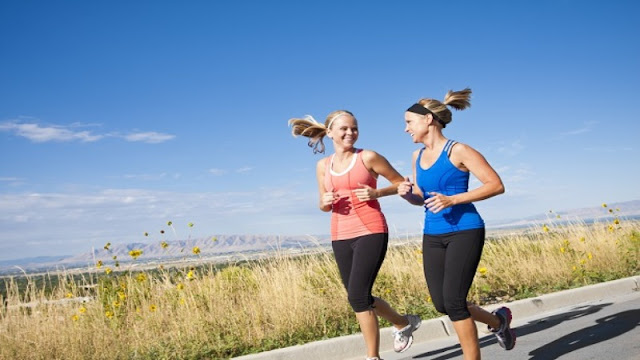
In her new e book, The Joy of Movement: How Exercise Helps Us Find Happiness, Hope, Connection, and Courage, the Stanford University lecturer provide new motivation to get transferring that has less to do with how we look, or feeling duty-sure to exercising, and the whole lot to do with how movement makes us feel. She stocks with readers the regularly profound, yet lesser-regarded advantages of exercise that make it a worth, lifelong pastime whether you are young, vintage, healthy or disabled."I want them to understand [bodybuilding] in a one-of-a-kind way than the standard communique we always have about weight loss, preventing disease and making our bodies appearance a sure manner," McGonigal tells NPR.
Among its many lifestyles-altering rewards: the technology of hope, happiness, a sense of motive, greater life delight and profitable connections with others.
"These benefits are visible all through the existence span," she writes. "They practice to every socioeconomic strata and seem like culturally time-honored."
And they aren't interest-specific and they do not require you to be a superathlete. Whether you run, swim, dance, motorbike, carry weights, do yoga or participate in team sports activities — it would not rely, McGonigal says — moderate bodily hobby does a long way more than make us bodily more potent and more healthy.
Here are five of the ways movement permit you to experience existence.
1) Activate pleasure
During workout, McGonigal explains, our brains launch neurotransmitters, in particular dopamine and endocannabinoids, that may generate a herbal excessive similar to that of cannabis, or marijuana.
Many of the outcomes of cannabis are consistent with descriptions of exercise-triggered highs, inclusive of the sudden disappearance of concerns or pressure, a discount in agony, the slowing of time and a intensifying of the senses," she writes.And at the same time as workout activates the identical channels of the brain's praise gadget that addictive pills do, she explains, it does so "in a way that has the complete opposite effect to your ability to enjoy existence."
Exactly the way it all works isn't absolutely tacit.
"Nonetheless the basic idea is that your brain can have a higher reaction to ordinary pleasures," she says, "whether it's your child smiling at you, or the flavor of food or your enjoyment of searching at something beautiful — and that is the complete opposite impact of dependancy."
2) Become a "extra social version of yourself"
In a chapter at the collective pleasure of workout, McGonigal explains how endorphins — another form of neurotransmitters launched throughout sustained bodily hobby — help bond us to others. It's a joining, she writes, that "can be experienced anytime and everywhere humans gather to move in unison," be it all through the float of yoga magnificence, for the duration of the synchronicity of crew rowing, at the same time as going for walks with pals or at the same time as training tai chi with others.And it additionally facilitates explain why those with whom we participate on groups or share health friendships regularly experience like circle of relatives, she says. Endorphins help fortify ties to people we're now not related to, which allows us build prolonged households and essential social networks that help stave off loneliness and social isolation.
Of direction, people can construct bonds thru sedentary activities as nicely, McGonigal says.
"But there's something about getting your heart price up a bit bit and using your muscle tissue that creates that mind state that makes you more willing to consider others — that enhances the pleasure you get from interacting with others that regularly makes you this more social version of your self," she says.
Three) Help with melancholy
In a segment on "green exercising," McGonigal discusses the nice shifts in temper and outlook suggested by using people who exercising in nature.
"It absolutely alters what is going on to your mind in a manner that appears absolutely much like meditation," she says. "People document feeling related to all of lifestyles ... And that they sense greater hopeful about lifestyles the situation."
Undeniably,
an Austrian study McGonigal cites found that amongst people who had formerly
attempted suicide, the addition of mountain hiking to their preferred clinical
treatment reduced suicidal thinking and hopelessness.



